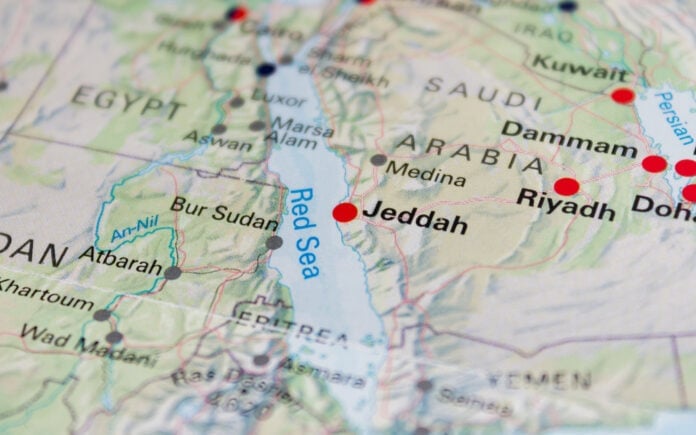After a number of attacks against vessels transiting the Red Sea in the Middle East region, the U.S. is pushing back.
This week, the U.S. announced it would take some steps, including sanctions, to push back against increasing attacks on shipping vessels in the Red Sea. The attacks have been blamed on Iran, who is aligned with Yemen’s Houthi group. The escalation of these attacks threatens global shipping and the regional supply chain in the area.
13 individuals and entities associated with the Iranian Revolutionary Guard Corps (IRGC), a paramilitary branch of Iran’s military, as well as intermediaries in various countries, were sanctioned. In recent years, the IRGC in particular has come under fire for its role in funding groups that have attacked commercial vessels traveling the Strait of Hormuz, another crucial waterway in the region. Lately, that blame has also shifted into the Red Sea as attacks on ships there mount since the Israel-Gaza conflict started two months ago.
The White House has pointed fingers directly at Iran for its role in supporting the attacks on commercials vessels.
Speaking at the Aspen Security Forum in Washington, DC, White House Deputy National Security Advisor Jon Finer was quoted as saying groups involved “would not have the weaponry, would not have the intelligence, would not have the motivation to do this, were it not for the role of the IRGC.”
The sanctions assessed against the entities associated with Iran’s government allege that tens of millions of dollars was funneled to the Houthis via businesses and foreign currencies, where Iranian goods were purchased to assist in the attacks against commercial shipping vessels.
Undersecretary of the U.S. Treasury, Brain Nelson, said: “The Houthis continue to receive funding and support from Iran, and the result is unsurprising: unprovoked attacks on civilian infrastructure and commercial shipping, disrupting maritime security and threatening international commercial trade.”
The U.S. has started intercepted vessel attacks before they happen.
With global trade and the U.S. and global supply chains at risk, the U.S. has begun intercepting attacks and protecting vessels before the attacks happen. It has sent some U.S. Navy ships into the region and is using those assets to help protect vessels, by shooting down missiles and drones.
Iran, for its part, denies any role in the attacks on commercial vessels in the region, whether the Red Sea or the Strait of Hormuz.




